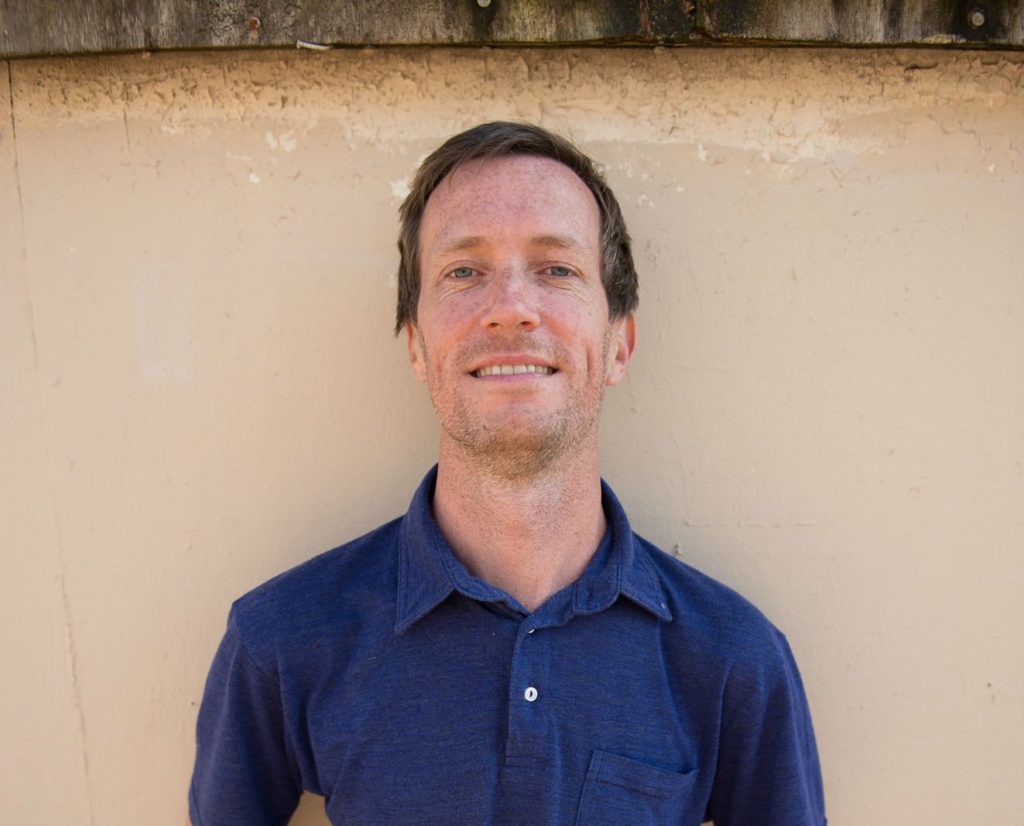The Happiness Trap

“THE FIRST STEP IS AWARENESS. FROM THERE IT’S ABOUT WORKING TO CREATE — AND MAINTAIN – A HEALTHIER BALANCE THAT FREES YOU UP TO WORK AT YOUR POTENTIAL AND MAKE YOUR BIGGEST CONTRIBUTION TO THE WORLD.”
Laurence McCahill, Co-founder, The Happy Startup School
Two-thirds of us feel unfulfilled at work, and many of the rest struggle with making a living; it’s high time this changed. “Happiness is when what you think, what you say, and what you do are in harmony,” said Mahatma Gandhi. Over the last five years, we have met hundreds, if not thousands, of people that are seeking more from their work and life. Whilst the monthly paycheque might be feeding their mouths, it’s not feeding their soul.
At the same time, there are others that have found their calling but struggle to make a living from it. We call this the happiness trap: for many, it’s a straight choice between doing good or making money. However, it needn’t be that way. We have been on an experiment to see what would happen if you built a business—and a community of like-minded founders—where you follow your heart, not your head. Where decisions are made for reasons other than money. Not the easiest path—we have had to make some tough decisions along the way—but certainly the most authentic and fulfilling.
What started as an idea has now been borne out in reality. We and many others in our community are living proof that it’s possible to find a balance between money and meaning, and that it’s a lot easier together than alone.
We’ve learned that when you put your heart on the line, more often than not the support you need comes your way. And entrepreneurship isn’t the only route. Some decide not to start a company at all, but rather use their newfound knowledge and clarity to collaborate with others on theirs or work in a role that gives them something more. What binds everyone is a common set of values and a desire to change things for the better. After coaching and mentoring many of these people, it’s become clear there are four discrete groups — each with different needs — but all with a realization that something is out of balance and needs addressing:

The rat racer
Too many people are living other people’s definitions of success, chasing the paper, not the dream. They’re working for the man, on the hedonic treadmill or climbing the wrong ladder. These people often see money as a means to an end but know there’s something missing. You’ll typically hear this group saying things like:
“I’ve tried doing what I love, but I guess it’s time to get a proper job.”
“Work is work, right? Fun is what happens at the weekend.”
The purpose seeker
This group that has found something they love doing that pays the bills, on the surface an incredible position to be in. However, optimizing for your own happiness can eventually start to feel a little shallow. You might want that dream car or crib in Bali, but if it’s all about you, you’ll never be truly happy. We’re social creatures and need to feel part of something bigger to develop deep, lasting happiness. “People who have meaning and purpose in their lives are happier, feel more in control and get more out of what they do. They also experience less stress, anxiety, and depression,” says Mark Williamson, of the NGO, Action for Happiness.
It may be that you find purpose elsewhere, whether from family or a side project. But if you still have a nagging feeling of emptiness and want to do work that matters, there are some simple ways you can start to bring more purpose into your work and life: Find problems that get you angry or frustrated Use this new-found fuel to make a positive difference to the lives of others, one step at a time
The slave

These people are making a living from something deeply meaningful. But while it’s a huge achievement and noble to put others first, many in this group— such as social entrepreneurs or charity workers—cite burnout as a problem, as they’ve failed to look after themselves. They have become a slave to the cause. Rather than being selfless – or even selfish — in Adam Grant’s words it’s important to be otherish (from his book Give and Take): “Otherish giving means being willing to give more than you receive, but still keeps your own interests in sight, using them as a guide for choosing when, where, how and whom to give. When concern for others is coupled with a healthy dose of concern for self, givers are less prone to burn out and get burned.”
These people are making a living from something deeply meaningful. But while it’s a huge achievement and noble to put others first, many in this group— such as social entrepreneurs or charity workers—cite burnout as a problem, as they’ve failed to look after themselves. They have become a slave to the cause. Rather than being selfless – or even selfish — in Adam Grant’s words it’s important to be otherish (from his book Give and Take): “Otherish giving means being willing to give more than you receive, but still keeps your own interests in sight, using them as a guide for choosing when, where, how and whom to give. When concern for others is coupled with a healthy dose of concern for self, givers are less prone to burn out and get burned.”
Here’s how you can rediscover your mojo.
- Better understand which of your fundamental needs aren’t being met.
- Get clear on what success looks like for you.
- Tune into your body so you can ensure you keep your energy high.
- Know your values and how they will help you to make better decisions.
The idealist
If you’re using your passion and skills to help others, but not making money, then this is solely a hobby or pro bono work, not a business. If you want to build a business, then you can’t avoid the fact that you’ll need to start making money.
If you battle with charging for something you love doing, then you have work to do. If you’re in this group it’s time you started to act, and think, more like an entrepreneur.
- Develop a different money mindset.
- Learn about different business models.
- Discover proven approaches to boost your income
Happiness and success don’t come by luck. It comes from a hard-fought understanding of who you are and what matters to you. The rest you can learn. Deep down you probably know yourself if there’s something out of kilter, typically manifested through an urge to create or change something. Your tactics may just change depending on whether it’s a lack of money, meaning or well being. The first step is awareness. From there it’s about working to create — and maintain – a healthier balance that frees you up to work at your potential and make your biggest contribution to the world. So, what are you waiting for?
The author is Co-founder of The Happy Startup School. He believes in building a global community of heart shaped entrepreneurs and leaders, one event at a time.
















